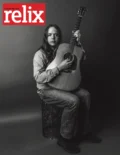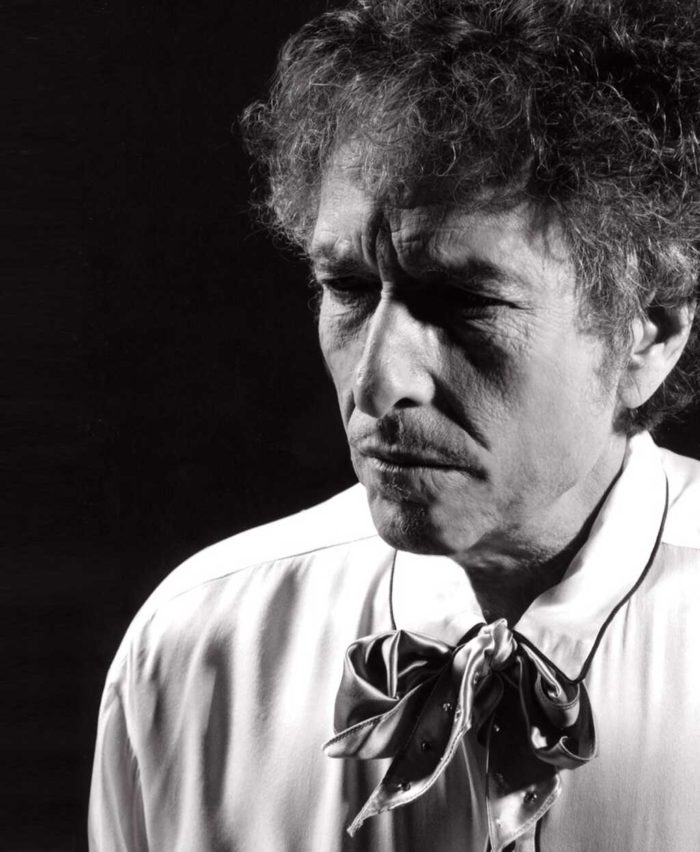Photo Credit: William Claxton
On Dec. 19, The Wall Street Journal published an interview with Bob Dylan following the release of The Philosophy of the Modern Song–the artist’s commentary on over sixty songs by other musicians–which dropped on Nov. 1. The Q and A style discussion see the legendary “Like A Rolling Stone” singer mention music, religion and more in conversation with fellow songwriter, and music journalist, Jeff Slate. Read now.
The discussion begins with a series of focused questions about the new book and quickly develops into a deeper look at Dylan’s life and interests. During the conversation, Slate asks Dylan about his preferred method of music consumption. Dylan responds, “I listen to CD’s, satellite radio and streaming. I do love the sound of old vinyl though, especially on a tube record player from back in the day. I bought three of those in an antique store in Oregon about 30 years ago. They’re just little, but the tone quality is so powerful and miraculous, has so much depth, it always takes me back to the days when life was different and unpredictable.”
To follow, the interviewer questions Dylan’s intake and new music discovery methods. And he replies, “Mostly by accident, by chance,” before name-dropping folks like Tiny Hill, Teddy Edwards, Brenda Lee, Sid Catlett, Teddy Bunn and Janis Martin, who he regards as “the female Elvis.” Dylan also mentions Julian Casablancas, the Klaxons, Grace Potter, as well as Royal Blood, Celeste, Rag and Bone Man, Wu-Tang, Eminem, Nick Cave and Leonard Cohen.
Then, Slate poses the question, “Does the way you first hear a song matter? Do you think that has changed the relationship of the listener to the song?” Dylan answers, “When you first hear a song, it might be related to what time of day you hear it. Maybe at daybreak – at dawn with the sun in your face – it would probably stay with you longer than if you heard it at dusk. Or maybe, if you first hear it at sunset, it would probably mean something different, than if you heard it first at 2 in the afternoon. Or maybe you hear something in the dead of night, in the darkness, with night eyes. Maybe it’ll be ‘Eleanor Rigby,’ and it puts you in touch with your ancient ancestors.”
Later on in the interview, Slate asks Dylan about his current favorite genre of music, “It’s a combination of genres; an abundance of them. Slow ballads, fast ballads, anything that moves. Western Swing, Hillbilly, Jump Blues, Country Blues, everything. Doo-wop, the Ink Spots, the Mills Brothers, Lowland ballads, Bill Monroe, Bluegrass, Boogie-Woogie. Music historians would say when you mix it all up it’s called Rock and Roll. I guess that would be my favorite genre.”
When asked about the artist’s use of technology to relax, he references television programs like Coronation Street, Father Brown and Twilight Zones before divulging that his devout outlook informs his downtown: “I’m a religious person. I read the scriptures a lot, meditate and pray, light candles in church. I believe in damnation and salvation, as well as predestination. The Five Books of Moses, Pauline Epistles, Invocation of the Saints, all of it.”
In cap the interview, Slate frayed from previous topics, subbing in a question about Dylan’s discussion to thank the crew from Dunkin’ Donuts in The Philosophy of the Modern Song. In typical fashion, Dylan stoically answers: “Because they were compassionate, supportive and they went the extra mile.”
For those interested in reading the complete interview between Dylan and Slate, follow this link.
View this post on Instagram




No Comments comments associated with this post